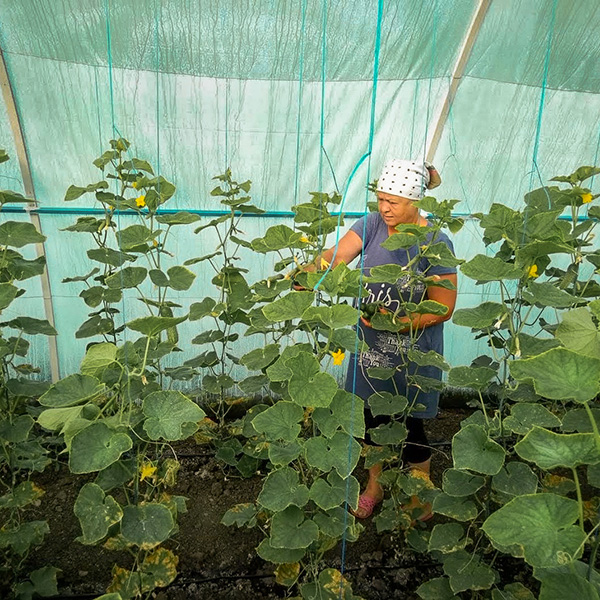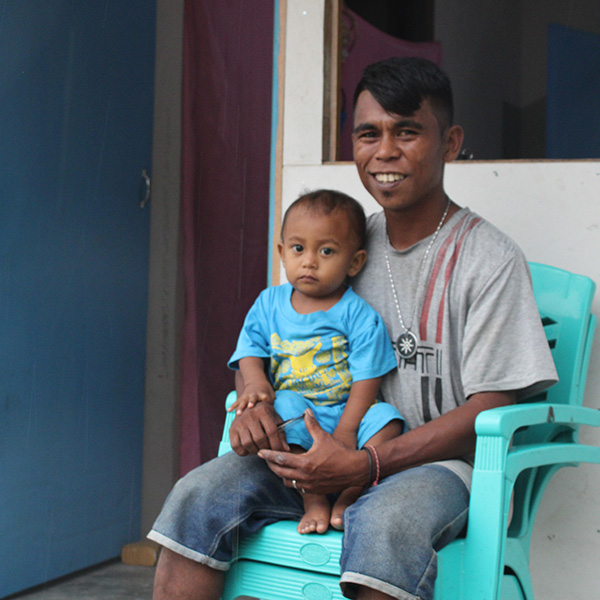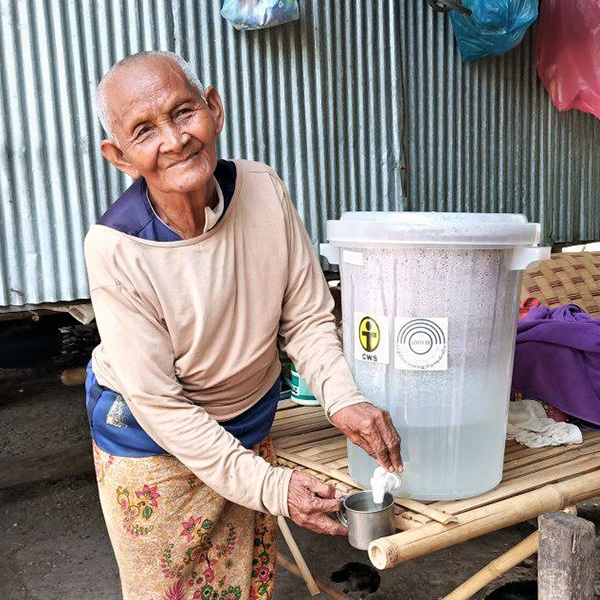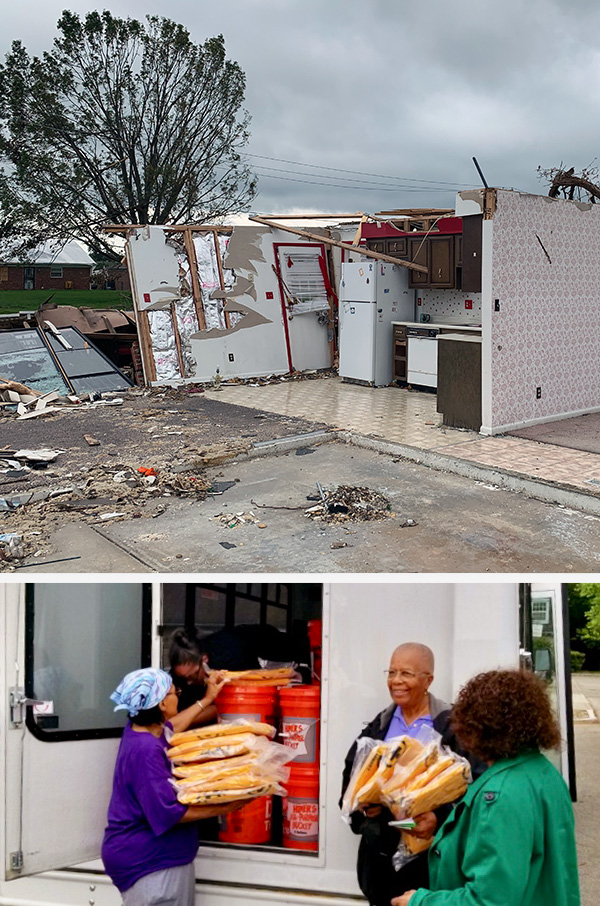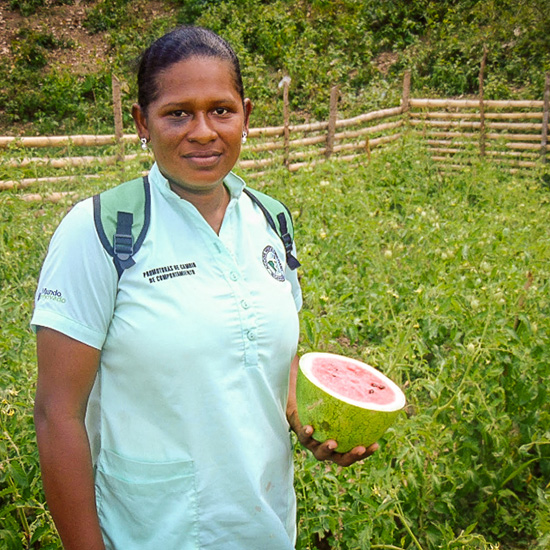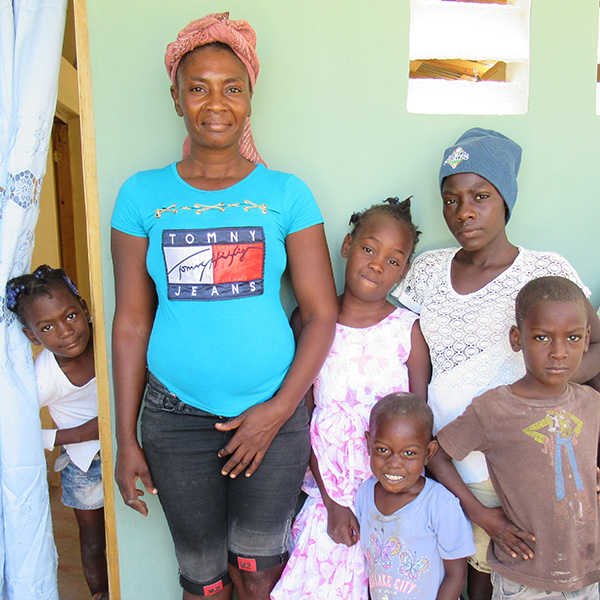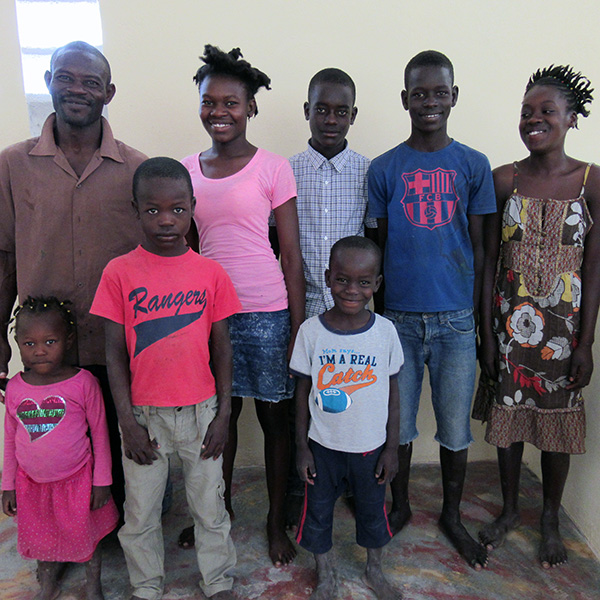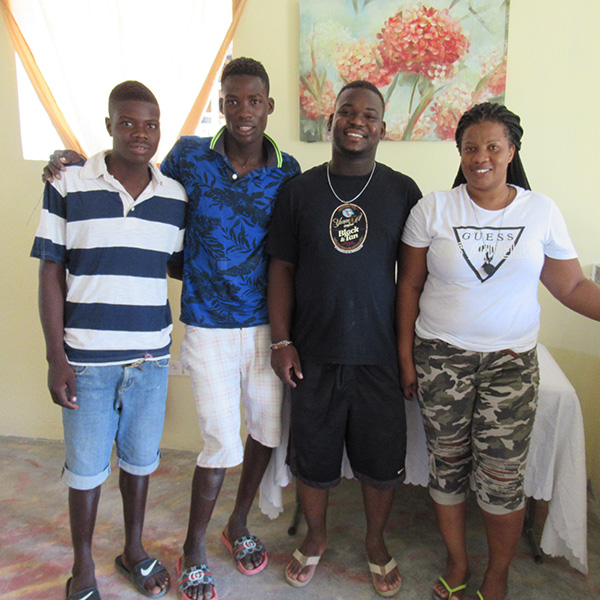Megan Shephard, CWS Greensboro In 1996, Mutoni along with her parents and siblings fled the Democratic Republic of Congo. They settled in a refugee camp in Rwanda. Despite the harsh circumstances within the camp, Mutoni met and married a Congolese man named Innocent. Together they had their first child. After living in the camp for 20 years, Mutoni received notice …
Stories of Change
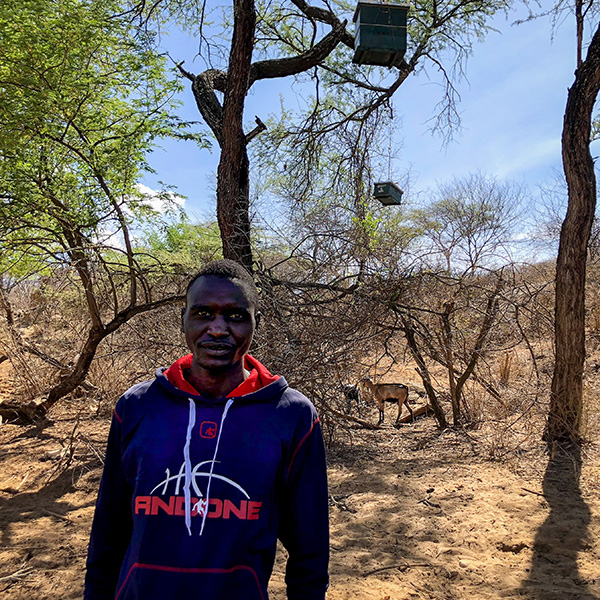
Philip stands in front of two of his beehives.
Valuable livestock in Kenya: bees!
When you think of the livestock that families raise to earn income, you probably think of cows and goats. But do you think of bees?
For Philip Nadomo in West Pokot, Kenya, bees are a precious part of his family’s livestock. Since he first heard about beekeeping, he has understood how they can be a source of income for families like his. In the same way that goats produce milk and grow in number, bees produce honey to eat or sell and increase their numbers as they take over new hives.
We’ve teamed up with an organization called African Beekeepers Limited to support beekeeping families in this part of Kenya. We provide 150 hives to each community. Up to 30 young people sign up to be part of the beekeeping group and receive five hives each. (Each hive costs about $65, so it costs about $350 to provide a set of hives and the supplies to hang them to each beekeeper.) African Beekeepers Limited provides harvesting equipment, training and honey processing units. They also purchase honey from the participants, guaranteeing a way for them to make money.
Men and women alike are participating in program. Unlike raising other animals, caring for bees is not physically taxing and doesn’t require people to travel long distances from home, which makes it safer for women. It’s easy to get the hives down from the trees using a pulley system; participants no longer have to climb into the trees to gather honey. For many women here, beekeeping is one of the few opportunities for them to add to their family’s earnings.
Beekeeping was already a common way of making a living in West Pokot before the CWS program. Unlike traditional hives, though, the hives in the CWS program have two chambers. The bottom chamber is built first. Once bees have colonized it, a second chamber is added on top. The queen cannot move from the bottom to the top chamber. This design means higher honey production from each hive. “We are very grateful that we received this kind of hives, and we are expecting a good harvest of honey,” Philip says.
By introducing new hive designs and a few other best practices from modern beekeeping, we can help families significantly increase their honey production. This is also a way for families to earn a living that doesn’t tax their fragile ecosystem. West Pokot County can be a harsh place to live, with long droughts and scarce resources. Many families face food insecurity, and poverty is on the rise. Beekeeping, though, doesn’t put much strain on the environment. And the fact that families are making more money to cover household expenses means that they will be more resilient through future shortages.
Philip is new to the program, and four of his five fives are already colonized. “I’m still young, and this is my first group,” he says. “What we’ve been telling each other is to take good care of the hives because they will give us a lot of profit and benefits.” Philip already has goats, but he is planning on using the income from his honey sales to buy a cow.

